Module 4: Discovering ASEAN on the Internet
Table of Contents
Reading Text & Presentation
4.4 Reference sources about ASEAN
Reference sources such as dictionaries, encyclopedias, almanacs, atlases, etc. are research tools that can help you with your paper or project. Reference sources provide answers to specific questions, such as brief facts, statistics, and technical instructions; provide background information; or direct you to additional information sources.
Reference sources are designed to be consulted rather than read through. Their design is generally dependent on the type of information and treatment provided. Reference materials can be arranged alphabetically, topically, or chronologically. Many will contain cross-listed information and more than one index. If it is not obvious how a reference source is organized, take a moment to look through the explanatory or how-to-use information, which is usually presented at the beginning of the book, or in HELP screens for online products (Figure 8).
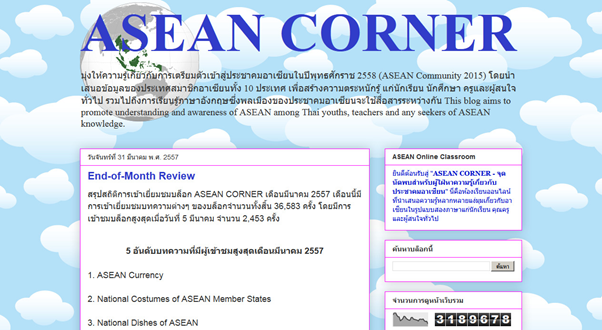
Figure 8 An example of a blog about ASEAN in Thai
(Source: http://aseancorner.blogspot.com/ retrieved 12/3/2014)
4.4.1 Dictionaries and translation tools
Currently, there are a number of online bilingual dictionaries of the local languages spoken in ASEAN countries. You may want to take a look at some examples given below (Figure 9) and do more searches on your own to locate more.
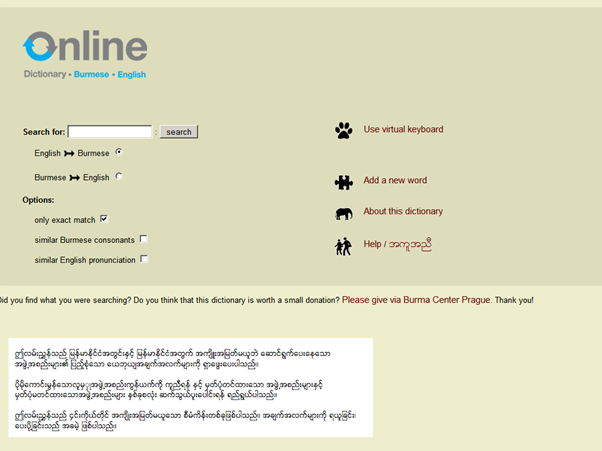
Figure 9 A Burmese-English dictionary
(Source: http://www.burmese-dictionary.org/ retrieved 30/5/2014)
In addition, several bilingual dictionaries can be combined together and offered in a single web page for easier access and search. The following website offers search and access to several online bilingual dictionaries, such as Vietnamese, Thai, Indonesian, etc. Users simply choose the box indicating the dictionary desired, and then enter the term to be translated without going to one dictionary website after another (Figure 10).
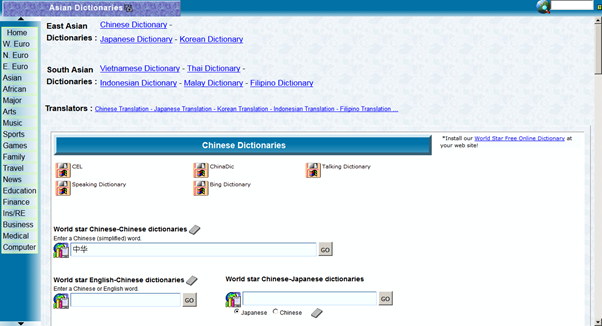
Figure 10 A web page containing links to several bilingual dictionaries
(Source: http://www.stars21.com/asian.html retrieved 30/5/2014)
Apart from dictionaries, there are new services that offer online translation of terms, phrases or paragraphs. This is more or less like having an online translator who can work with a host of languages, including Thai, Khmer, Indonesia, Malay, Vietnamese (Figure 11). However, it should be noted that this translation service, especially the free one, is computer-based. It is quick and free of charge and it works well with everyday simple language. Do NOT try to use it to translate an academic article, a professional paper or a speech (Figure 12).

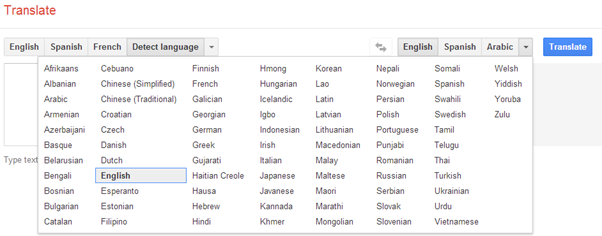
Figure 11 Google Translate service with languages offered
(Source: http://translate.google.com/ retrieved 30/5/2014)

Figure 12 Pros and cons of Google Translate
Kushinka, M. (2012, May 16). Pros and cons of Google Translate.
(Source: http://www.redlinels.com/2012/05/16/pros-and-cons-of-google-translate/ retrieved 12/3/2014)
4.4.2 Encyclopaedia or encyclopedia
An encyclopaedia or encyclopedia contains information on all branches of knowledge or treats a particular branch of knowledge in a comprehensive manner. Wikipedia is a well-known and free online encyclopedia, written collaboratively by the people who use it (Figure 13). Nevertheless, when you're doing academic research, you should be extremely cautious about using Wikipedia. As its own disclaimer states, information on Wikipedia is contributed by anyone who wants to post material, and the expertise of the posters is not taken into consideration. Users may be reading information that is outdated or that has been posted by someone who is not an expert in the field, or by someone who wishes to provide misinformation. However, the fact that Wikipedia is not a reliable source for academic research doesn't mean that it's wrong to use basic reference materials when you're trying to familiarize yourself with a topic.
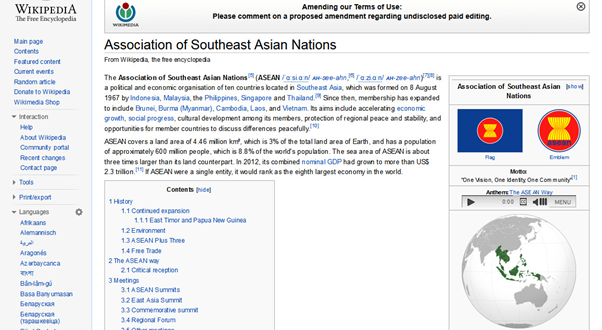
Figure 13 A Wikipedia article on ‘Association of Southeast Asian Nations’
Association of Southeast Asian Nations. (n.d.) in Wikipedia.
(Source: http://en.wikipedia.org/wiki/Association_of_Southeast_Asian_Nations retrieved 23/2/2014)
4.4.3 Guides to ASEAN resources.
Some educational and research institutions do compile lists of recommended resources to ASEAN that can be used to directly link to websites. For instance, Michigan State University, Northern Illinois University, Association of Southeast Asian Nations (ASEAN), and the Institute of Southeast Asian Studies, Singapore all offer guides to ASEAN resources as well as their own publications accessible to the public. Examples are shown in Figures 14-17.
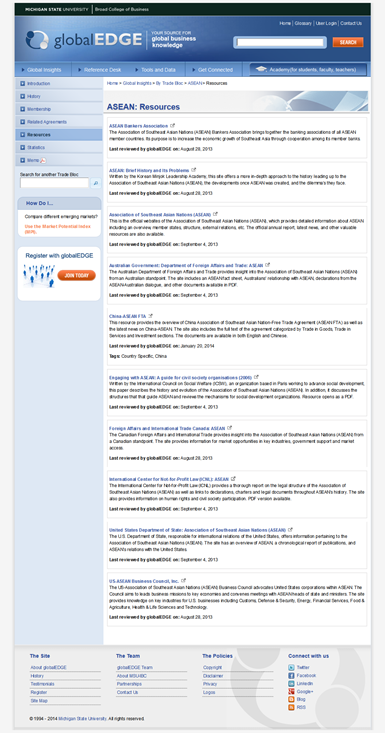
Figure 14 A web page containing links to selected resources about ASEAN
(Source: http://globaledge.msu.edu/trade-blocs/asean/resources retrieved 30/5/2014)
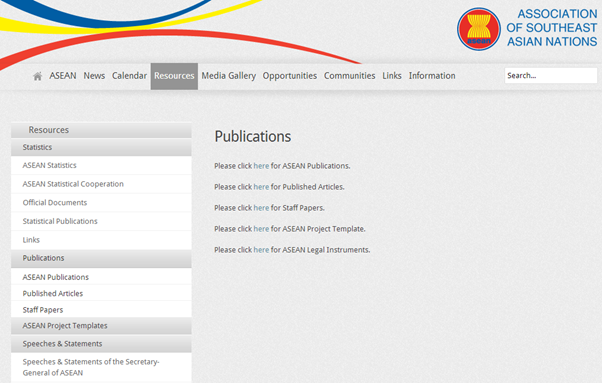
Figure 15 Another example of publications about ASEAN available on the internet
(Source: http://www.asean.org/resources retrieved 30/5/2014)

Figure 16 A web page of an institute dedicated to the study of ASEAN
(Source: http://asc.iseas.edu.sg/ retrieved 30/5/2014)
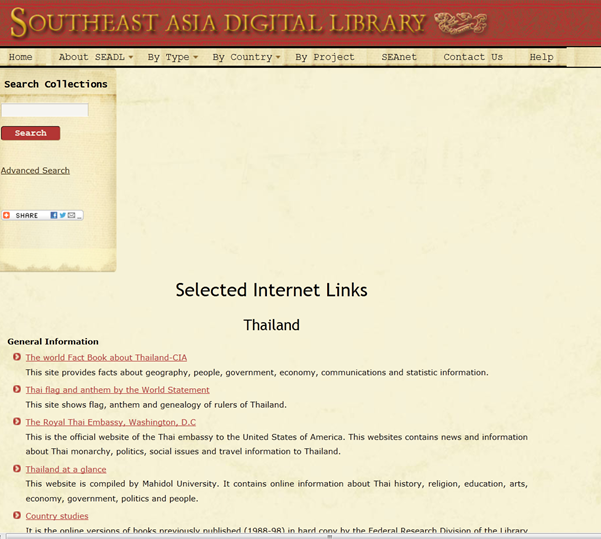
Figure 17 A digital library containing links to resources about ASEAN on the internet
(Source: http://sea.lib.niu.edu/node/200/Thailand retrieved 30/5/2014)
4.4.4 Access to documents and other resources
Libraries collect and provide access to printed books, articles, journals, electronic books and journals, databases and other media. To search for their collection, libraries make their online catalogs available on the web. The Sukhothai Thammathirat Open University (STOU) Office of Documentation and Information, which is in charge of library services also offers its online catalog publicly on the internet (Figure 18). An international conference provides access to papers and presentations presented during the conference (Figure 19).
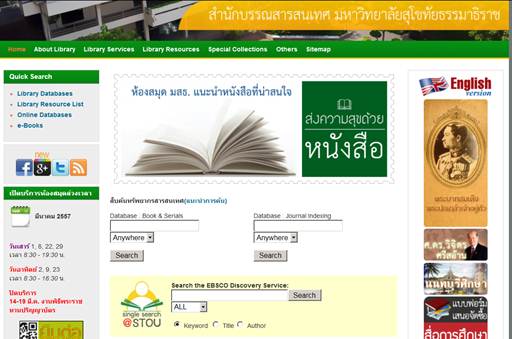
Figure 18 The online public catalog of Sukhothai Thammathirat Open University Library
(Source: http://library.stou.ac.th)
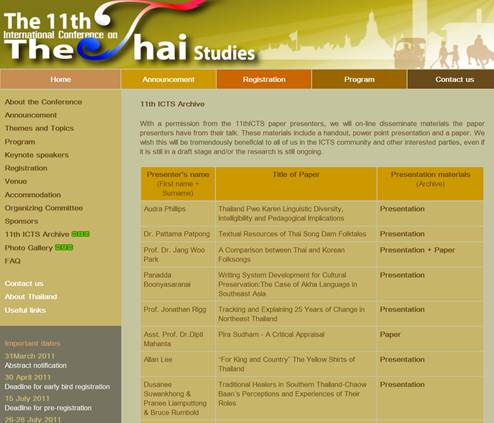
Figure 19 An international conference on Thai Studies
(Source: http://www.lc.mahidol.ac.th/thaistudies2011/archive.htm retrieved 30/5/2014)
In addition, online repositories of multi-disciplinary scholarly papers and articles offer access to their catalogs and full-text papers. For instance, Social Science Research Network (SSRN) is a worldwide collaborative of over 241,000 authors and more than 1.7 million users that is devoted to the rapid worldwide dissemination of social science research (Figure 20).
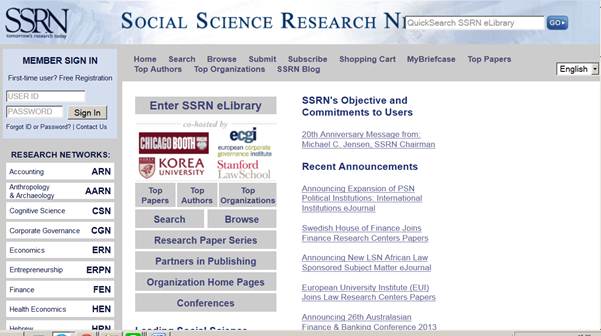
Figure 20 Social Science Research Network
(Source: http://www.ssrn.com/en/ retrieved 30/5/2014)
4.4.5 Searching for career-related information within ASEAN and beyond
Text from Rasmussen, D. (2013, December 20). Job Search Resources: The Whole World is at your Fingertips.
(Source: http://www.pathfindercareers.com/blog/2013/job-search-resources-whole-world-fingertips/#sthash.2wB3UZi9.dpuf retrieved 5/3/2014)
You are looking for a job in a specific field, but are starting from scratch. You don’t know anyone, and you don’t know what jobs are out there.
Here are some steps demonstrating how you can think like a library:
1) Use a search engine and do a search of an industry field name – see what companies come up.
For example, you can use “hospitality,” “tourism,” “hotels,” etc.
2) Go back and do another search under “News” to search for that target company in the news.
3) Go to their website to learn more about what they do.
4) Using the company website, follow them on social media. Note: larger companies on Twitter may
have a separate Human Resources or recruiter account so you could be interacting with them directly.
5) Follow the company on LinkedIn (another social networking group focusing on professionals)
to get any news updates.
6) Start using LinkedIn to find people who work at that company.
7) Look at each person’s profile to see the types of professional memberships they hold, and make note of
them so you can join them too.
At the moment, the above-mentioned search yields information about specific companies you may want to take into consideration. However, should you want to gather other information about working abroad, you may want to take a glance at this European Union (EU) page that contains information about working in an EU country to see what type of information you might want to gather and direct your future searches (Figure 21).

Figure 21 A useful source for asking questions about finding jobs abroad
(Source: http://europa.eu/youreurope/citizens/work/finding-job-abroad/index_en.htm retrieved 30/5/2014)